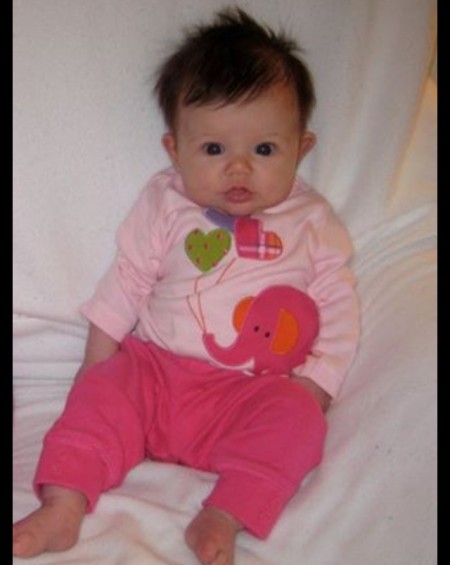“It is hard to imagine now that until coming back to live permanently in Henry County in 1964 we had lived in Europe, California and New York City, with stays in Kentucky between those moves. We moved to Lanes Landing, where my parents live now, when I was 7 and my brother, Den, was 3. . .
Daddy was encouraged to seek his fame and fortune elsewhere; in fact, he was told that coming home would ruin his career. I don’t have to imagine, however, the great happiness that was his when he knew that he could come home because I experienced that. When I was away at school, for instance, I don’t think anyone was thinking that I was blowing a shot at a brilliant career by returning home. Coming home was not encouraged by any influential person in my life except my family. And this is where my unending debt begins in my heart and in my memory. . .
I was asked once what it was like to be a Berry child. I answered that it was fine except for the constant humiliation. I believe that I went along with my father’s plans for us very agreeably until I was 12 or 13, the age when I think many children realize that their parents need guidance.
Daddy had come home to live and farm. He bought a rocky hillside farm overlooking the Kentucky River. He and my mother have added some acreage over the years and the place has been their home and their fascination ever since. . .
I went right along with all of this until I was old enough to have a reputation to protect. That coincided with the addition of a composting privy to the rest of an ever-more-embarrassing way of life.
Unfortunately for me, my father didn’t understand at all that he should. . .never mention the composting privy to a journalist. I was in a difficult predicament. I never really thought that my father was wrong about anything. In fact, the reasons for the things we did at home were talked about all of the time, and I understood and even honored those reasons. But, to have details about your composting privy reported in the Louisville Courier-Journal was just too much to be borne. . .
The very public privy opened the floodgates and suddenly I knew how abused I was: no television, no junk food, no trips to amusement parks, and I had to WORK outside in the dirt. And, my father was always protesting something: wars, dams, strip-mining, airports, etc.
Well, to make a long story short, I expect that by the time I left for college there must have been a general sigh of relief. Some of the freshman English classes at the college I attended were reading The Memory of Old Jack, a novel written by my father. I had not read it before I left home. In fact, I had read almost nothing of Daddy’s by then. He read things to us that he was working on and I guess I thought that was plenty. I suppose I experienced positive peer pressure at school because girls in my dorm were reading The Memory of Old Jack. So I read The Memory of Old Jack, myself. That book gave me back my home and it gave me the chance to make amends with my father and then to find out that no amends were necessary. . .
A heartbreaking part of Old Jack’s story is his estrangement from his daughter Clara, who, like me, had wanted something else, something better. I called my father when I finished the book and asked, “Am I Clara?” I remember being reassured by the phone call. I still have the letter he wrote me a few days after we talked. He said that he was moved by my question and told me that of course I was not Clara. The letter is long and beautiful and I treasure it because of its kindness, its good sense, its understanding of a flawed young girl. . .
Trouble has come to me in my life as it does to all and I have made mistakes. The gift that my father gave me so many years ago was the knowledge that I live in his love, and if forgiveness is needed it has already been given. What greater gift could a parent give a child? Daddy has kept alive in my head — even in the worst of times and in the face of awful news — that if we actively choose it over and over everyday, we can indeed live in the world of affection and membership that he honors in his life and his stories.”
– Mary Berry-Smith, from Wendell And Me, published in the May/June 2013 issue of Edible Louisville Magazine (emphasis mine).
_________
I find so many details about this story life-giving, but the real solidifying agent for my respect of Wendell Berry is that his child knows and can articulate why she respects him so greatly as to devote her adult life and the family she started to following in his footsteps. Many great leaders of men have inspired the masses while leaving wreckage at home, but those devoted eternally to their families carry a certain weight that should not be overlooked.
As a parent myself, the greatest impact of this story is the fact that above all else in their relationship, Berry’s daughter has been moved by a realization that she has always existed in her father’s love, affection, and forgiveness. She came to realize that, whether she knew it or not, he cherished her, delighted in her personality, and was always ready to pardoned her missteps.
Things like obedience are valuable. Social skills and a drive to learn are developmentally key. But after about 18 years, obedience becomes completely obsolete in the parenting relationship. Social skills and learning generally fall out of our influence range. So when my daughter it 25 or 30, what is my deepest desire for our relationship? The answer is intimacy.
More than I want my daughters to make great decisions and live to the fullest, I want them to know that any failures or tragedies that befall them can be safely confided in me, without any negative repercussions. The deepest, underpinning goal is that the relationship may always be authentic, open, and capable of enduring all things.
_________
From the text of The Memory Of Old Jack.
“In all their minds his voice lies beneath a silence. And in the hush of it they are aware of something that passed from them and now returns: his stubborn biding with them to the end, his keeping of faith with them who would live after him, and what perhaps none of them has yet thought to call his gentleness, his long gentleness toward them and toward this place where they are at work, they know that his memory holds them in common knowledge and common loss, the like of him will not soon live again in this world, and they will not forget him.”






